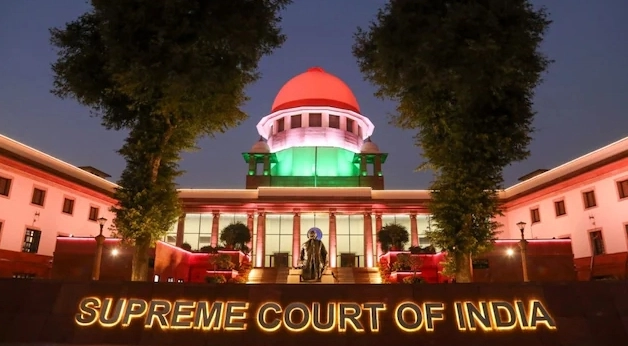
The Supreme Court, while hearing a case where a man and his father spent months in jail after the wife filed several false cases against them, has reaffirmed that no immediate arrests should be made in cases of alleged cruelty by spouses under Section 498A of the Indian Penal Code. Instead, a mandatory two-month “cooling-off" period will be in place before any police action is considered, upholding guidelines first framed by the Allahabad High Court.
The Supreme Court, led by Chief Justice BR Gavai and Justice Augustine George Masih, was hearing a case where the man and his father had spent over 100 days in jail based on false complaints filed by the wife, an IPS officer. Recognising the irreparable harm suffered, the court ordered the wife to issue an unconditional public apology, calling it a measure of moral redress for the wrongful imprisonment sustained by her husband and father-in-law.
According to the guidelines, after an FIR is lodged for cruelty in marriage, police authorities must wait two months before taking any coercive action, including arrest. During this period, cases must be referred to Family Welfare Committees set up in every district, which will review the complaints and try to achieve a settlement. Only cases involving offences punishable by less than 10 years’ imprisonment, including 498A, will be referred to these committees. Each Family Welfare Committee will consist of at least three members and will function as an independent review body before further police intervention is permitted.
These directives have their legal roots in the Allahabad High Court’s 2022 judgment, which sought to address a worrying trend: the misuse of Section 498A via sweeping, unsubstantiated allegations that could result in entire families—sometimes even extended relatives—being implicated, harassed, and jailed. The Supreme Court, by endorsing these safeguards, has now clarified that such protection is vital to prevent unnecessary arrests and to ensure the criminal justice system is not weaponised in personal disputes.
In the case that led to this decision, the matrimonial discord involved a series of litigations in multiple cities, with over 20 different cases related to domestic violence, maintenance, and criminal charges. The bench observed that what the accused had suffered due to the misapplication of the law “cannot be resituated or compensated in any manner," highlighting the need for systemic procedural reform.
Legal experts believe that the cooling period and welfare committee review will help to weed out frivolous and malicious complaints, protect those who may otherwise be wrongly ensnared in criminal proceedings, and focus mediation on reconciliation and fair outcomes. Meanwhile, the core protections for genuinely aggrieved women remain intact, as serious allegations supported by strong evidence can still be acted upon—after the initial review.
-
Chinese actress Huang Yi’s daughter dreams of becoming K-pop idol despite mother’s wish for her to study abroad

-
Jannat Mirza rejects Bollywood role with Kartik Aryan

-
People Praise DoorDash Driver For Complying Customers Highly Specific Demands

-
3 Zodiac Signs Experience Joy They Haven’t Felt In A While On July 24, 2025

-
The Custom Motorcycle That Was Built For Ozzy Osbourne Two Decades Ago
